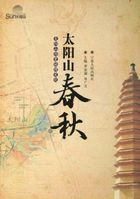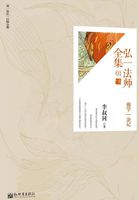The various stages of development in the division of labour are just so many different forms of ownership, i.e. the existing stage in the division of labour determines also the relations of individuals to one another with reference to the material, instrument, and product of labour.
The first form of ownership is tribal [ Stammeigentum ]1 ownership.
It corresponds to the undeveloped stage of production, at which a people lives by hunting and fishing, by the rearing of beasts or, in the highest stage, agriculture. In the latter case it presupposes a great mass of uncultivated stretches of land. The division of labour is at this stage still very elementary and is confined to a further extension of the natural division of labour existing in the family. The social structure is, therefore, limited to an extension of the family; patriarchal family chieftains, below them the members of the tribe, finally slaves. The slavery latent in the family only develops gradually with the increase of population, the growth of wants, and with the extension of external relations, both of war and of barter.
The second form is the ancient communal and State ownership which proceeds especially from the union of several tribes into a city by agreement or by conquest, and which is still accompanied by slavery. Beside communal ownership we already find movable, and later also immovable, private property developing, but as an abnormal form subordinate to communal ownership.
The citizens hold power over their labouring slaves only in their community, and on this account alone, therefore, they are bound to the form of communal ownership. It is the communal private property which compels the active citizens to remain in this spontaneously derived form of association over against their slaves. For this reason the whole structure of society based on this communal ownership, and with it the power of the people, decays in the same measure as, in particular, immovable private property evolves.
The division of labour is already more developed. We already find the antagonism of town and country; later the antagonism between those states which represent town interests and those which represent country interests, and inside the towns themselves the antagonism between industry and maritime commerce.
The class relation between citizens and slaves is now completely developed.
With the development of private property, we find here for the first time the same conditions which we shall find again, only on a more extensive scale, with modern private property. On the one hand, the concentration of private property, which began very early in Rome (as the Licinian agrarian law proves 1 ) and proceeded very rapidly from the time of the civil wars and especially under the Emperors; on the other hand, coupled with this, the transformation of the plebeian small peasantry into a proletariat, which, however, owing to its intermediate position between propertied citizens and slaves, never achieved an independent development.
The third form of ownership is feudal or estate property. If antiquity started out from the town and its little territory, the Middle Ages started out from the country. This different starting-point was determined by the sparseness of the population at that time, which was scattered over a large area and which received no large increase from the conquerors. In contrast to Greece and Rome, feudal development at the outset, therefore, extends over a much wider territory, prepared by the Roman conquests and the spread of agriculture at first associated with it. The last centuries of the declining Roman Empire and its conquest by the barbarians destroyed a number of productive forces; agriculture had declined, industry had decayed for want of a market, trade had died out or been violently suspended, the rural and urban population had decreased. From these conditions and the mode of organisation of the conquest determined by them, feudal property developed under the influence of the Germanic military constitution. Like tribal and communal ownership, it is based again on a community; but the directly producing class standing over against it is not, as in the case of the ancient community, the slaves, but the enserfed small peasantry. As soon as feudalism is fully developed, there also arises antagonism to the towns. The hierarchical structure of land ownership, and the armed bodies of retainers associated with it, gave the nobility power over the serfs. This feudal organisation was, just as much as the ancient communal ownership, an association against a subjected producing class; but the form of association and the relation to the direct producers were different because of the different conditions of production.
This feudal system of land ownership had its counterpart in the towns in the shape of corporative property, the feudal organisation of trades.
Here property consisted chiefly in the labour of each individual person.
The necessity for association against the organised robber-nobility, the need for communal covered markets in an age when the industrialist was at the same time a merchant, the growing competition of the escaped serfs swarming into the rising towns, the feudal structure of the whole country: these combined to bring about the guilds. The gradually accumulated small capital of individual craftsmen and their stable numbers, as against the growing population, evolved the relation of journeyman and apprentice, which brought into being in the towns a hierarchy similar to that in the country.















